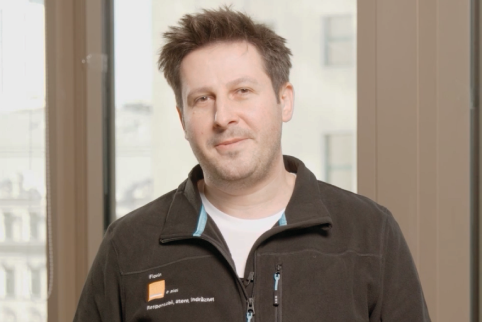How to Reinvent Your Performance Management to Drive Productivity and Growth
6 min read

2023 is set to be a year of transition and reprioritization. Given that the economy is slowing, with layoffs underway and increased focus on profitability margins, performance management processes that can support growth and productivity are a hot topic this year.
Recently, we’ve heard more and more of companies like Google that are revitalizing their performance management system to track more carefully top-performers and, at the same time, their underperforming employees.
Although most organizations already have performance management systems and tools in place, some are still not able to achieve their performance goals. In this article, we’ll look at the limitations of traditional ways of performance appraisal and what a modern performance management approach looks like.
Why do traditional performance management systems fail?
The reasons why performance management fails are different from one company to another based on various factors. However, some stand out and are part of the old ways of evaluating performance:
Limited yearly reviews
By now, every HR or people manager should realize that annual performance reviews do not work. In this system, employees don’t really know if they are on track and cannot adjust the course early on to make the necessary changes.
Additionally, employees are more likely to experience higher levels of stress due to the inherent significance of the event — one day, one review can decide their future in the company.
There’s also the challenge of overcoming recency bias. That is, recent performances or events will be remembered more accurately and can have a bigger impact on an employee’s evaluation, even if his overall performance has been positive.
Inefficient communication
The lack of proper communication can have a high impact on people’s productivity and performance. That’s because it’s difficult to successfully move towards goals and achieve them when they aren’t clear or when the necessary steps to get there aren’t visible.
Limited communication will also prevent your workforce from prioritizing their tasks and projects efficiently. This can lead to delays, rushed work, and misunderstandings between coworkers, teams, or managers, and direct reports.
Inefficient communication can also result in unclear expectations and a lack of alignment between managers and their teams.
Not future-oriented
Traditional performance management processes often focus on the past and the identification of shortcomings. This affects the morale and overall sentiment of employees, who would benefit more from having their strengths celebrated and receiving public recognition instead.
Annual performance reviews also fail to offer employees much-needed regular feedback and support in meeting expectations and moving in the right direction. It can have an impact on their levels of confidence, which, indirectly, will affect their performance as well.
Key aspects to implement for a modern and effective performance management process
Performance management should be more continuous, and more development-oriented. Organizations worldwide have already seen the benefits of adopting this type of performance management models, which focuses on the present and future potential of the employees and are based on:
Ongoing check-ins
Regular check-ins and feedback are part of the daily or weekly workflow in modern performance management. But they should be flexible. Not every department or team needs to follow the same timeline or have the same frequency of feedback.
The main purpose of ongoing check-ins and feedback sessions is to proactively and closely support people’s performance as it happens, not when it’s done, to surface in-the-moment actionable insights, and to encourage development as a way to achieve better results.
Focus on people’s development
Modern performance management is about people. The focus is on their present and future potential, not on errors or undesired results from the past.
This modern approach doesn’t appraise employees only based on their goal achievement rates, but also on the progress made towards those goals, as well as their skills and how they have improved over time. Skills development is crucial because one of the best ways to ensure your workforce reaches high-performance levels is to ensure they have the necessary abilities to excel.
At Nestor, we take a holistic approach to performance seeking to improve employee productivity and motivation as well as to retain top talent. We enable people’s development by connecting goals, engagement, progress, and career growth.
Through regular check-ins and 360 feedback loops, we aim to surface areas to improve so that managers, together with their teams, can set up personalized goals for development. In this way, people are encouraged to continually improve their skills so they can perform better and advance in their roles.
Updated relevant goals
In the new approach of modern performance, goals are relevant, flexible, and personalized. Goals are also transparent across teams and departments. Everybody should see how their objectives align with those of others and contribute to the organization’s mission and strategic direction.
At the same time, people managers should set these goals with their employees, and decide together that they are achievable. This is important because even people from the same team or with similar job roles may need different objectives.
New perspectives focused on people empowerment
At that same time, higher performance is about people’s enablement and empowerment. When people are encouraged to take ownership of their projects and tasks and are supported with learning and development opportunities according to their needs and aspirations, they will strive for more.
This is different from old performance management cycles, which used to focus mostly on deciding if and what type of raise or extra compensation would be awarded. According to Forbes:
Performance management, well applied, should be liberating and empowering, not confining. And when it is well applied, it will produce great results — not just for the business but for the engagement and satisfaction of everyone in the company.
— Forbes
What modern performance management means for people leaders
The new way of measuring and evaluating performance is rather a coaching approach than a managing one. It’s a dynamic, agile, and ongoing process that can transform any organization.
Due to their flexible and continuous nature, modern performance management goals will require more meaningful interactions between managers and their employees. This can be challenging because some leaders will have to improve their interpersonal skills.
This is where HR departments need to step in and ensure everybody has access to high-quality manager training materials and coaching courses. Managers should also be given time to accommodate and understand what’s expected from them in this new way of enabling performance.
Final thoughts
Many companies, including Microsoft, Adobe, and Accenture have benefitted from updating their performance management plan to a modern version. We can perhaps call it ‘Continuous Performance Management’ or ‘Growth Performance Management’.
It’s an approach that has different values at its core, including transparency, flexibility, dynamism, and people’s development. And, if implemented successfully, will lead to a decrease in bureaucracy, an increase in employee satisfaction, and a performance appraisal that leads to the desired results and expectations.








